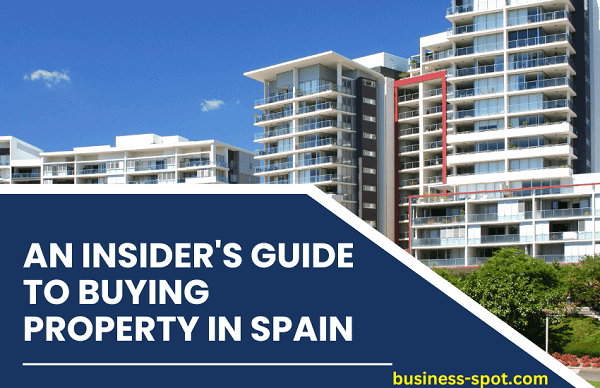Are you considering buying property in Spain? Whether you’re looking for a holiday home or a permanent residence, the stunning country has a lot to offer. With its sunny climate, beautiful beaches, and vibrant culture, there is something for everyone. But before you take the plunge, it’s important to consider the costs, benefits, and other factors that can impact your decision. This guide will cover everything you need to know about buying property in Spain, from the legal process to the costs, so you can make an informed decision. Read on to discover the complete guide to buying property in Spain!
Table of Contents
Research and Requirements
The first step is to know the cost of buying property in Spain and is to do thorough research into the local laws and regulations. This includes making sure you understand Spanish property laws and making sure you meet the legal requirements for buying in the country. You’ll need to research the different regions of the country and their unique laws, obtain an NIE number (a foreign identification number) and ensure that you can get a mortgage if necessary.
Once you’ve done your research and are sure you meet the requirements, the next step is finding an experienced and trustworthy lawyer to represent you in the property purchase. The lawyer will not only be invaluable in helping you through the process but will also help protect your interests and ensure a smooth purchase. It’s also important to find an estate agent or local representative who has a good reputation and is familiar with the local market.
Cost involved in buying a newly built property in Spain
- 10% VAT: Properties purchased for the first time (first construction properties), where the seller is a developer, banker, promoter, or ordinary trader for brand new properties. This type of property is accompanied by the payment of 10% VAT on the purchase price.
- 1.2 % Stamp Duty (AJD): The rate varies according to the autonomous community where the property is located (villa, apartments, flat with attached garage – maximum of two annexes). Andalusia has a property rate of 1.2%.
Home buying costs in Spain for resale homes
In some cases, we deal with the purchase of previously transferred homes, and in-homes. Usually, the grantee is an individual, but in crisis situations, banks may transfer homes.
- Stamp duty on a resale home (ITP); this must be supported by the buyer, and the tax rate paid depends on where the house is located. The Stamp Duty on New Homes (AJD) is different from this.
- Andalucía Stamp Duty (ITP): Houses, Villas, Apartments, Flats, and garages attached to the house with a maximum of two garages in Andalucía are subject to 7% Stamp Duty.
- Vat (IVA) / Stamp Duty (ADJ)
Costs related to buying a house in Spain
- Spanish Notary Fees The notary’s fees are always paid by the buyer, and are designed according to the number of pages that the deed comprises the value of the property, and the number of official papers attached to the deed. Expenses for notaries vary depending on the area, so it’s difficult to provide exact numbers.
- Spanish Land Registry Office Recording a property in the Land Registry is not obligatory in Spain. However, the lettering in the Registry is the main means of legal defense for the property holder.
- Legal Fees You contact both a lawyer and a tax consultant so that together they can guide you and carry out all of the required steps involved in a property purchase
- Mortgage If you are going to buy a house in Spain with a loan, must contact the bank before the purchase so that they can compute all of the costs related to the mortgage.
- Banking Costs To make the purchase, it will be mandatory for you to open a bank account in Spain, where you will need to relocate your money from your home country to Spain.
Taxes and Expenses
Now that the contract is signed, the next step is to pay the taxes and fees required to buy the property. These include an ‘Impuesto de Transmisiones Patrimoniales’ (a property transfer tax) and a ‘Plusvalia Municipal’ (a municipal tax). Both of these taxes are based on the purchase price and will need to be paid at the time of purchase. Other fees may include registration fees, notary fees, estate agent fees and lawyer fees, so make sure to budget for these as well. On top of the taxes, you will also need to budget for the ongoing expenses of owning a property in Spain. These include utility bills, repair and maintenance costs, property insurance and any special payments required by local laws, such as property taxes. It’s important to factor in all of these costs when assessing whether a property is a good investment or not.
Tips for a Smooth Purchase
With the right preparation and advice, you can purchase a smooth and successful Spanish property. A few tips to be remembered when buying a house. Get everything in writing. Any special requests for repairs or renovations are included. Make sure your lawyer and estate agent are reputable and experienced. They will help you navigate the process and protect your interests. Third, research local taxes and regulations carefully, so you can calculate any additional costs. Lastly, budget for any ongoing costs associated with owning a property.
Conclusion
Buying a property in Spain is a complex process, but with a bit of research and the right advice, it can be a success. Research the region, the legal requirements and the cost of living, and make sure to get everything in writing. Use a reputable lawyer and estate agent, and be sure to budget for all taxes and expenses. With the right preparation and guidance, you can be sure that your property purchase will be a success.














